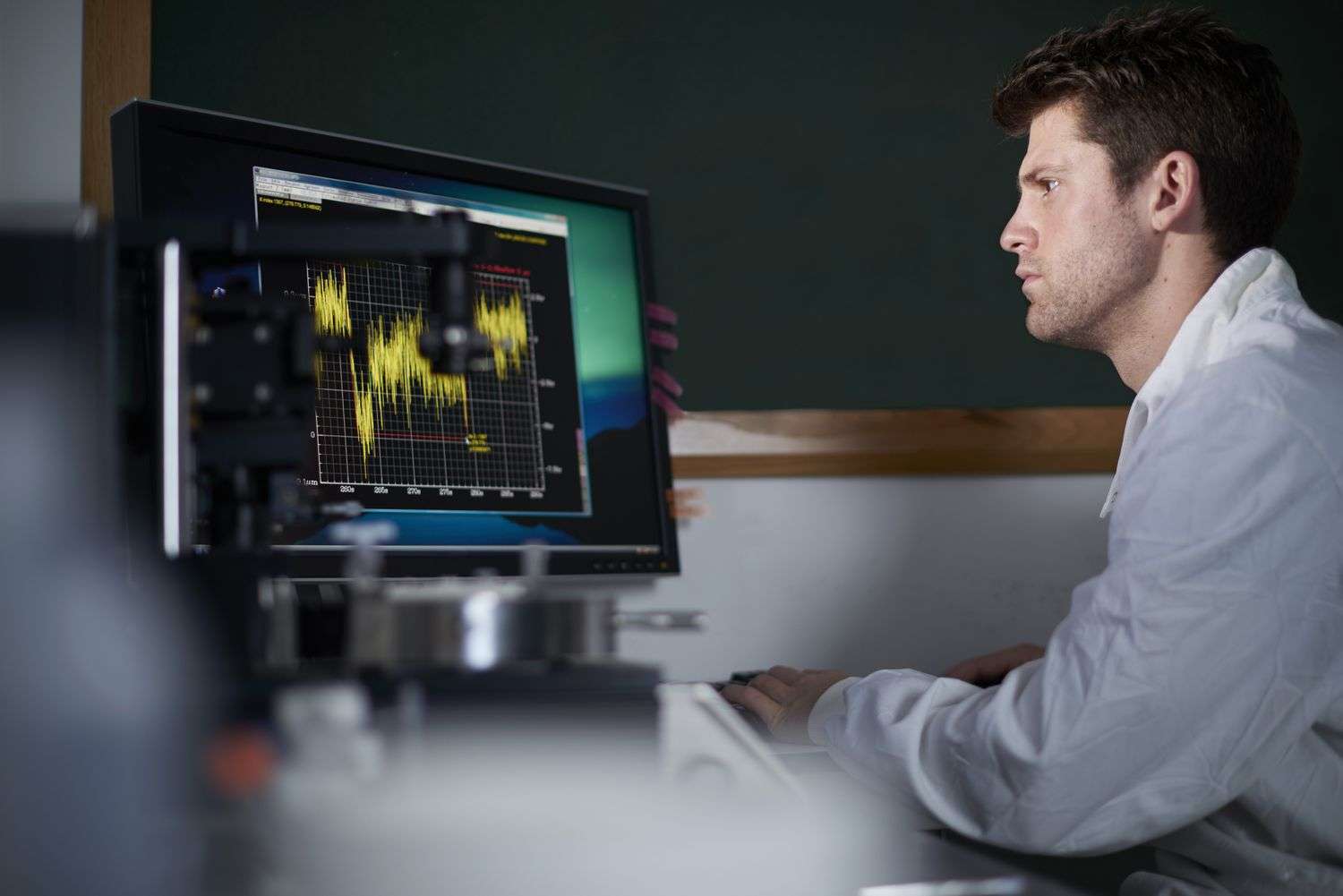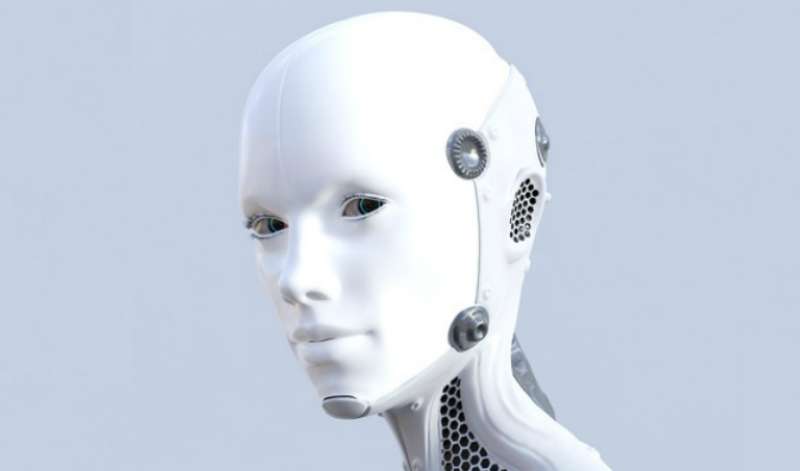Experimental psychologists study an enormous range of topics within psychology, including both human and animal behavior. Do you enjoy researching human behavior? If you have a passion for solving problems or exploring theoretical questions, you might be interested in a career as an experimental psychologist.
If you have ever wanted to learn more about what experimental psychologists do, this career profile can answer some of your basic questions and help you decide if you wish to explore this specialty area in greater depth.
What Experimental Psychologists Do
An experimental psychologist is a type of psychologist who uses scientific methods to collect data and perform research. Experimental psychologists explore an immense variety of psychological phenomena, ranging from learning to personality to cognitive processes. The exact type of research an experimental psychologist performs depends upon a number of factors, including their educational background, interests, and area of employment.
According to the American Psychological Association, experimental psychologists often work for universities, government agencies, private research centers, and nonprofit organizations. While they often study the human mind and behavior, they may study animal behaviors as well. Some key areas of interest within experimental psychology include memory, learning, attention, sensation and perception, and how the brain influences behavior.
Work Environment
Experimental psychologists work in a wide variety of settings, including colleges, universities, research centers, government, and private businesses. Some of these professionals focus on teaching experimental methods to students while others conduct research on cognitive processes, animal behavior, neuroscience, personality, and many other subject areas.
Those who work in academic settings often teach psychology courses in addition to performing research and publishing their findings in professional journals. Other experimental psychologists work with businesses to discover ways to make employees more productive or to create a safer workplace in specialty areas such as industrial-organizational psychology and human factors psychology.
Education and Training
Programs in experimental psychology are designed to train students to design studies, conduct empirical research, and understand ethical issues in research. Typically, experimental psychologists need at minimum a master’s degree in general or experimental psychology. For those interested in working at a university, a doctorate-level degree in psychology is usually required.
It is important to remember that you do not necessarily have to earn a degree in experimental psychology in order to work as an experimental psychologist. Doctorate programs in psychology provide rigorous training in research design and experimental methods. Applied specialty areas such as human factors psychology and industrial-organizational psychology often have a very strong research focus, and professionals who work in these fields often make experimentation and research the major focus of their careers.
Salary
The American Psychological Association reported that the average 2015 wages for experimental psychologists with doctorate degrees was $92,000. The National Bureau of Labor Statistics reported mean wages of $95,610 in 2018 for “other psychologists” working outside the school systems (primary education counselors), hospitals, and clinics.
Job Outlook
According to the Occupational Outlook Handbook published by the U.S. Department of Labor, the job outlook for psychologists is projected to grow by 14% through the year 2028. Individuals with a doctorate, especially those in an applied specialty or professional areas, are expected to find the greatest job prospects.
Is a Career in Experimental Psychology Right For You?
Experimental psychologists not only need to have an excellent understanding of psychology research methods, but they also need to have outstanding organizational and communication skills. In many cases, jobs in this field include a range of duties outside of conducting research. You may also need to obtain funding, maintain careful records, collaborate with peers, and present the findings of your research to outside groups. The ability to write well is also important since you might be writing up the results of your research for publication in professional and academic journals. A quiz may help you determine if a career in experimental psychology is right for you.
HomeClinical Psychology
Careers in Experimental Psychology
Learn about human behavior with a degree in experimental psychology.


Specialists who work in experimental psychology use a methodological approach to conduct experiments in controlled situations in order to examine human behavior.
These psychologists take nothing for granted as they scrutinize human responses to sensation, perception, motivation, memory, learning and physiological psychology.
Experimental Psychologists may perform the following duties:
- Run experiments to study human behaviorism and mental phenomena
- Study behavior processes in animals
- Use findings to inform diagnoses and treatments for various social, behavioral and emotional disorders
Salaries
Experimental psychologists are part of the larger field of psychologists. Take a look at median annual salaries for psychologists, as reported by the U.S. Bureau of Labor Statistics’ 2021 Occupational Employment Statistics, below.
Psychologists, All Other
National data
Median Salary: $102,900
Projected job growth: 2.8%
10th Percentile: $39,760
25th Percentile: $73,910
75th Percentile: $120,240
90th Percentile: $133,200
Projected job growth: 2.8%
State data
State Median Salary Bottom 10% Top 10% Alaska $113,340 $74,360 $137,780 Alabama $104,420 $39,560 $123,800 Arkansas $95,200 $26,230 $119,770 Arizona $105,000 $47,780 $124,090 California $116,490 $52,520 $165,060 Connecticut $113,570 $42,180 $133,760 District of Columbia $105,300 $51,670 $135,030 Florida $104,720 $48,690 $127,590 Georgia $101,340 $64,650 $119,770 Hawaii $105,640 $23,680 $142,380 Iowa $113,630 $62,350 $129,040 Idaho $92,120 $48,920 $113,630 Illinois $101,600 $38,310 $130,050 Indiana $98,280 $39,380 $120,790 Kansas $102,380 $29,350 $122,150 Kentucky $104,420 $64,270 $121,330 Louisiana $103,040 $43,720 $119,930 Massachusetts $112,860 $49,170 $133,370 Maryland $114,050 $52,170 $159,700 Maine $72,790 $48,770 $104,420 Michigan $64,650 $39,340 $121,410 Minnesota $64,500 $39,560 $130,360 Missouri $105,960 $46,760 $121,530 Mississippi $92,120 $26,230 $119,770 North Carolina $96,430 $46,890 $119,770 North Dakota $101,360 $48,920 $128,380 New Jersey $98,680 $38,210 $127,750 New Mexico $101,980 $26,350 $120,540 Nevada $99,740 $48,920 $128,770 New York $110,550 $30,160 $138,400 Ohio $105,500 $39,090 $132,390 Oklahoma $99,420 $39,630 $124,900 Oregon $108,160 $49,190 $169,620 Pennsylvania $107,540 $50,520 $130,210 Rhode Island $62,410 $29,820 $151,680 South Carolina $110,550 $47,580 $136,840 South Dakota $101,340 $26,230 $119,770 Texas $105,930 $52,960 $127,130 Utah $104,420 $44,990 $135,690 Virginia $107,630 $61,550 $134,780 Vermont $98,280 $77,020 $119,770 Washington $111,030 $56,730 $131,210 Wisconsin $95,200 $46,580 $124,690 West Virginia $40,730 $31,140 $110,550 Wyoming $113,630 $26,230 $169,620
Source: U.S. Bureau of Labor Statistics (BLS) 2021 median salary; projected job growth through 2031. Actual salaries vary depending on location, level of education, years of experience, work environment, and other factors. Salaries may differ even more for those who are self-employed or work part time.
Work Environment
Experimental psychologists often work in private research centers and universities (where they are employed as professors), as well as nonprofit, business and government organizations. Their work is primarily focused on statistics, research and experimentation.
Training and Education
Becoming an experimental psychologist should begin with an undergraduate degree in psychology. From there, individuals are free to pursue a Master of Arts or Master of Science degree (MA or MS) in experimental psychology, or simply psychology MA and MS programs in psychology are more plentiful than programs in experimental psychology).
These programs, which generally take two years to complete, will further expose students to the wide and fascinating field of psychology. However, this degree alone is not enough to enter the fiercely competitive field of experimental psychology.
Most doctorate programs (PhD) in experimental psychology require individuals to have obtained their MA or MS degree in one of the psychological fields. PhD programs can take three years or more years to complete, depending on the individual’s time frame. These programs provide students with the nuanced training and knowledge to perform their own empirical research, read data and conduct experiments.
What is Experimental Psychology?
Experimental psychology, the study of behavior, brain function and the mind, is used by many different types of psychologists. Experimental psychology involves the evaluation of behavior by conducting controlled laboratory experiments to obtain information.
Studies are designed and research is conducted by applying the scientific method to learn about the behavior of humans and animals. Experimental psychology seeks to answer questions like why people behave the way they do, how the personality develops, and how our behavior shapes our experiences in life.
In order to find out the answers to these and other questions, researchers use the principles of experimental psychology to construct a hypothesis. The hypothesis states a testable prediction describing what the researcher thinks the study results will show.
Experimental psychologists then use experimentation to prove or disprove the hypothesis. These experiments employ the scientific method to test the hypothesis by asking an initial question, designing a study to find the answer and collecting pertinent data. When the results are analyzed, conclusions are drawn and the results of the study are disseminated to others.
What Does an an Experimental Psychologist Do?
Experimental psychology delves into topics like how people pay attention, learn and remember, what motivates them, how they use their senses to perceive the world around them, and how emotions play a part in understanding. Experimental psychologists seek a correlation between two variables, like a cause and effect relationship.
Researchers may conduct an experiment with two groups, with one group receiving a treatment, and the other group, the control group, receiving no treatment. Participants must be assigned to groups randomly.
Studies in experimental psychology must demonstrate reliability and validity. Reliability is consistency of results, where an experiment will get the same result when it is conducted again. Validity refers to determining if the psychological experiment rally measures what we intend it to measure.
An example of what an experimental psychologist might study is finding out if it is really better to give than to receive. This study might set out to show that people are happier when giving money to others than when they spend money on themselves.
Another example of what an experimental psychologist might study would be to show that people are willing to spend more for a product they think has limited availability. In other words, if a product is hard to find or will be around for only a short while, people may be willing to pay more.
Related: What Can You Do With an Experimental Psychology Degree
Why Do We Need Experimental Psychologists?
Experimental psychologists provide information that can be used to improve many areas of society. The insights gained from scientific research are applied to teaching and learning in schools.
Information that results from studies performed by experimental psychologists can also be used to create safer transportation systems like subways, and create safer workplaces.
Knowing what motivates individuals and how they perceive the world around them can help to improve substance abuse treatment programs, keep offenders out of jail and contribute to at risk individuals becoming productive members of society.
Experimental psychologists can provide information that promotes healthy child development by highlighting the way children understand their environment, learn about the world and react emotionally to family and others.
Experimental psychologists also provide data from research to answer questions about human and animal behavior. They identify behavioral and emotional patterns to predict future behavior. Experimental psychologists use the information they gather to increase understanding between groups and individuals.
As they conduct studies, their body of work builds and contributes to more and more important conclusions. In fact, some experimental psychologists spend their entire career devoted to finding the answer to a single complicated research question.
What are the Requirements to Become an Experimental Psychologist?
Educational Requirements
Most experimental psychologists need a doctoral degree in psychology, especially if they work at a university. Coursework in experimental psychology teaches students how to design research studies and conduct empirical research by means of observation and experimentation. Experimental psychology students are also taught to understand how to deal with ethical issues as they conduct their research.
It is necessary to obtain a bachelor’s degree in order to pursue a profession in experimental psychology. A bachelor’s degree in psychology is ideal, although any degree is acceptable as long as a student can gain entry to a graduate school with the chosen major. A degree with some coursework in mathematics or philosophy could both be helpful in the long run while working in experimental psychology.
Once the B.A. is completed, a graduate school must be chosen. It is hard to choose a school – it is important to do research when choosing where to pursue a doctoral degree, especially when the career goal is in such a thrilling field. You can enroll in either research focused Ph.D. (doctor of philosophy in psychology) or practice focused Psy.D. (doctor of psychology) program.
A doctoral dissertation is required for all Ph.D. programs and most Psy.D. programs. A doctoral program in experimental psychology may provide training in following areas:
- Behavioral Neuroscience
- Behavioral Pharmacology
- Cognition
- Developmental Psychology
- Sensation and Perception
- Social Psychology
- Health Psychology
- Research Methodology
- Statistics
A doctoral degree in experimental psychology is not necessary to work as an experimental psychologist. Other doctoral programs in psychology that offer training in experimental methodology include industrial–organizational psychology and human factors psychology.
You can also pursue a Master of Arts or Master of Science degree (M.A. or M.S.) in experimental psychology, after completing your bachelor’s degree. However, career opportunities in this highly competitive field of psychology will be limited with a master’s degree. A graduate experimental psychology program may provide training in following areas:
- Behavioral Neuroscience
- Cognitive Neuroscience
- Abnormal Psychology
- Cognitive Psychology
- Quantitative Psychology
- Developmental Psychology
- Brain and Behavior Relationships
- Memory Learning
- Human Development
- Social Interactions
Licensure Information
To become a fully licensed, an experimental psychologist must eventually complete 3,000 supervised hours of practice. However, requirements may vary from state to state. Graduated doctoral students generally gain these hours through a combination of internships, research positions and entry level positions.
What Skills are Required for an Experimental Psychologist?
The role of an experimental psychologist requires a skill set that is a little different to other psychologist roles. The main skills needed are:
- Problem Solving Abilities – an experimental psychologist needs to be able to assess a problem or theory and develop a scientifically sound way to test a hypothesis. They need to be able to see an issue clearly and consider it from many different angles to produce the most effective testing.
- Dedicated – the tests and experiments of an experimental psychologist can last for many weeks or even months. A psychologist in this field is also likely to have an area of specialty that they perform research in throughout their careers. They must be able to remain dedicated and focused to the current experiment to ensure it runs smoothly for its full duration.
- Inquisitive – experimental psychologists need to be naturally inquisitive people. Consider areas such as human behavior, they often look closely at details that many other people take for granted and ask questions about the most fundamental of issues.
- Detail Orientated – developing a scientifically sound experiment requires close attention to detail as well as the ability to think through several possible outcomes to ensure the testing is comprehensive. While running the test, experimental psychologists also need to make sure that protocols are followed extremely closely.
- Organized – to run successful experiments, individuals have to be organized. Being able to anticipate problems and plan for several outcomes means proactively rather than reactively, means that an experiment has the best chance at providing a useful and credible outcome.
Where Does an Experimental Psychologist Work?
Experimental psychologists work in a variety of settings. These research psychologists typically work a full-time schedule in research centers and universities. They may also work for a governmental agency, or for a private corporation. Experimental psychologists who work in an academic setting often publish their findings in professional journals and teach psychology courses to students.
Experimental psychologists often follow their own personal interests when designing studies. For example, some experimental psychologists are interested in cognition, how individuals acquire, process and store information. They study issues relating to attention, language and memory, and they investigate how people make decisions and solve problems. The conclusions they draw can be used to create educational curriculum or to design educational software.
Experimental psychologists generally work in the following environments:
- Colleges and Universities
- Consulting and private research firms
- Government research groups
- Government and Private businesses
- War veterans and disaster post-traumatic counseling
What is the Salary for an Experimental Psychologist?
As of October 2022, according to ZipRecruiter experimental psychologists on average earn $93,013 per year. Experimental psychologists in the top bracket on average earn $211,000 per year.
Experimental psychologists working in Nebraska, New York and California earn the highest average annual salary of $125,496, $110,147 and $104,039 respectively.
In general, salary depends on what type of organization employs the experimental psychologist – there are private research institutes as well as universities that may have a bigger budget.
What Careers are Similar to Experimental Psychology?
Mental Health Counselors and Marriage and Family Therapists: Mental health counselors and marriage and family therapists help people with problems deal with family relationships and find strategies that will help them manage mental disorders and live a more fulfilling lifestyle. A master’s degree is required.
Market Research Analyst: A market research analyst helps corporations understand the products consumers are willing to buy and the price they are willing to pay. They study market conditions to determine the sales potential of a service or product. A bachelor’s degree is required.
School and Career Counselor: School and career counselors guide students in making career decisions and develop the social skills they need for success. A master’s degree is required.
Personality Psychologist: Personality psychologists are concerned with the relationship between an individual’s personality and how he or she gets along with others and adapts to external and internal stresses. Nobody’s life is completely stress-free, but some people adapt better than others.
Personality psychologists can help those whose everyday functioning has been adversely affected because of a personality disorder. Behavioral and cognitive therapy are two approaches which personality psychologists use that have been found to be effective. Personality psychologists can also help businesses implement more cost effective hiring and marketing strategies.



